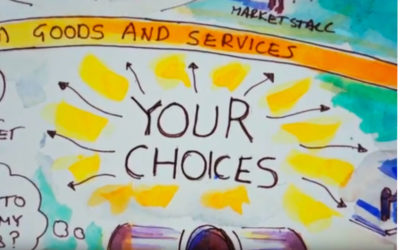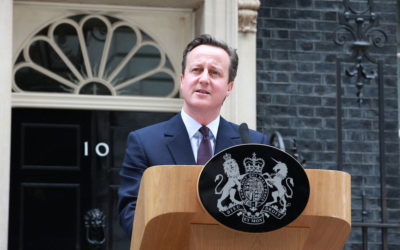Below is a list of reports and briefings, commission short pieces and provocations the FDSD published—to stimulate debate, enable people to air their opinions and suggest solutions.
In order to influence ongoing decision-making, FDSD produced submissions and letters in response to national and international consultations, and raises issues directly, either by ourselves or with partners. We also produced event summaries of some of our most important activities.
Proposed Wellbeing and Sustainable Development (Scotland) Bill | FDSD submission
FDSD submitted a response to Sarah Boyack MSP on the proposed Wellbeing and Sustainable Development (Scotland) Bill. We highlighted the importance of adopting a long-term perspective in policymaking to ensure the wellbeing of current and future generations.
Renewing our democracy by placing people from all walks of life at the heart of decisions | Recommendations to Labour Policy Forum Inquiry
FDSD made a collective submission to the Labour Policy Forum on 17 March 2023 together with Involve, Demos, the Sortition Foundation, IsWe and Shared Future. In it we argued that since our current democracy is failing to tackle the big challenges of our time, we need to engage many more people from different backgrounds in all aspects of our political and policy decision-making
Exploring the tensions: The relationship between democracy and sustainable development
This briefing paper explores a range of tensions between existing liberal democracies and sustainable development, whose recognition, negotiation and potential resolution, may better enable long-lasting and beneficial solutions to be developed and implemented.
Levelling up – what will it mean for future generations? | Provocation by John Lotherington
Regional disparities have haunted policy makers in the UK for generations – regional economic agencies have come and gone, motorways were built to reconnect economic centres, subsidies were tried and then more market forces. But, as we emerge from the pandemic, ‘levelling up’ has come to be ‘the defining mission of this government’, according to Michael Gove. In this provocation, John Lotherington questions the leveling up strategy.
Time to reconcile conflict and collaboration—some insights from mediation | Provocation by Andrea Westall
As we move ever closer to 2030 – the arbitrary endpoint for the collectively agreed UN Sustainable Development Goals – and in a year when the commitments of the climate negotiations at the 2021 UN Climate Change Conference, COP26 will need to be further strengthened, we do not have the luxury to stay in our comfort zones, or just comment from the side-lines. Agreeing and negotiating how we go forward, in a fair way, will be tough. It requires us to roll up our sleeves, banish any presumption of easy ‘win-wins’, and engage with people with whom we may not easily get on.
Designing for impact: the next stage for climate assemblies | Provocation by Graham Smith
If the recent COP26 tells us anything, it’s that different ways of making hard decisions about our shared futures are needed. Too often critical decisions are made through last minute compromises, hammered out amongst small groups of negotiators behind closed doors, with the voices of those who are most vulnerable to the ravages of the climate crisis excluded.
Is the Wellbeing of Future Generations Act standing up to the test of time and delivering for future generations? | Provocation by Peter Davies
The Wellbeing for Future Generations (Wales) Act became law in 2015. It is now 6 years since the Act became law and we are entering a critical period with transition from key leaders, local authority elections and with enough time passed to judge whether the Act has actually made any difference to how Wales is governed – although not enough to see whether it has made a difference for future generations. So, has the Act achieved what we hoped for Wales?
With democracy becoming an endangered species, is sustainability in peril?
In 2008, Sara Parkin wrote a ‘provocation’ for the Foundation for Democracy and Sustainable Development: “Are Political Parties getting in the way of the sort of collaborative democracy we need to tackle sustainability? If so, what can we do about it?” Ten years later, she revisits her thinking “in the light”, she says “of the corruption of our current democratic systems”.
Proposal: Committee for Future Generations in the House of Lords
FDSD sees the ongoing review of House of Lords committees as an opportunity to try to strengthen long-term thinking in the UK Parliament. Backed by more than 30 peers, we are proposing a new Committee for Future Generations in the second chamber.
Improving data flows to achieve the Sustainable Development Goals
FDSD responded to the consultation by the Office of National Statistics (ONS) on their proposed approach to measuring and reporting on the Sustainable Development Goals (SDGs) within the UK.
An Opportunity for Transformational Change: A Provocation on the Potential for a Future Generations Commissioner for the UK
In response to the provocations by Peter Davies and Sándor Fülöp at the FDSD event ‘A Future Generations Commissioner for the UK’, Andrea Westall argues that we need to think beyond institutions in isolation. While Commissioners may have an important role to play, we need to be creative in developing governance structures that promote long-term thinking at all levels.
Future Generations Commissioners: Learning Lessons from Wales
In this provocation, Peter Davies offers personal reflections on his role in the development of the Future Generations Commissioner for Wales within the broader story of the journey of devolution – a journey that started with the duty to promote sustainable development in the initial Government of Wales Act. His role in this story begins in 2006 when he was appointed to the UK Sustainable Development Commission as Commissioner for Wales.
The Necessity and Powers of Future Generations Organisations
The imminent ecological crises and our consumer society’s lack of receptivity to this bad news mean that an independent, authentic voice is needed to represent the interests of future generations. In this provocation, Sándor Fülöp draws on his experience as Hungarian Ombudsman to explain the necessity and powers of a future generations organisation.
Giving Tomorrow’s Citizens A Voice Today
Does the United Kingdom need a Commissioner for Future Generations? What would that role look like and how could we set it up? Participants at an event in April 2017, hosted by FDSD in in partnership with the Centre for the Understanding of Sustainable Prosperity and the Centre for the Study of Democracy suggest there is room for an ombudsman-type role to represent the interests of unborn generations, and identify three possible roads towards it.
How can the Interests of Future Generations be Protected in the UK Political System?
In response to the provocations by Peter Davies and Sándor Fülöp at the FDSD event ‘A Future Generations Commissioner for the UK‘, Victor Anderson reminds us that there are a variety of approaches to safeguarding the interests of future generations. Our focus can be on any of the three different traditional branches of government in the UK: the executive, legislature, and judiciary.
Implications of the Budapest Water Summit 2016 for water governance and democracy
The theme of the Budapest Water Summit 2016 was that Water Connects across all of sustainable development and across geographies. But to ensure against future conflict and scarcity, the messages and recommendations from the event also highlighted how we need to rethink and create governance models within and across countries.
Can participation improve environmental governance? Lessons from European water management
It is increasingly argued that involving stakeholders and the wider public in planning and decision making leads to more effective environmental governance. But the impact of such participatory planning in practice remains unclear. In this report, the authors compare...
Economics is for Everyone! | Provocation by Graham Smith
The economy is an area of decision-making fiercely protected by experts and politicians from public participation. But public confidence in this closed policy community is waning and arguments for democratic participation in an area that so profoundly shapes all our lives are growing. Against this backdrop, the Royal Society of Arts (RSA) has launched an exciting project in 2016: the Citizens’ Economic Council (CEC). T
Submission to the UK’s Environmental Audit Committee inquiry into the UK’s domestic implementation of the SDGs
In September 2016, we responded to the Environmental Audit Committee’s inquiry: The sustainable development goals in the UK. You can find our submission on the EAC website. We argued that currently Whitehall is not publicly stating, acknowledging or realising the...
The EU Referendum and the UK’s Environment: What are the implications for democracy?
Charlotte Burns and Viviane Gravey argue that the EU Referendum debate in the UK has been “surprisingly quiet on the issue of the environment”. They look at three options for the UK from the point of view of their impacts on participatory democracy, as well as point to the tension between participation and stable long term rules for environmental protection.
They believe that the terms of the current debate are far too narrow. “National sovereignty is essentially a red herring that offers little in the way of genuine democratisation of environmental (or any other) policy area.”
Pickering and the flood that didn’t happen: citizen participation and its critics
John Lotherington reflects on the ongoing debate about the impact of the community-led flood defences in Pickering after the town was sparred the flooding that hit large parts of northern England in late 2015.
Sustaining democracy in disaster: The seeds of recovery
Bronwyn Hayward argues that despite the New Zealand Government’s attempts to reduce democracy after the 2010-2012 earthquakes, by suspending the Constitution and excluding local voices in decision-making, innovative citizen actions showed alternative, more imaginative and democratic responses to disaster recovery. One example is the Student Volunteer ‘Army’ who cleared mud and silt, and organised through Facebook.
The rise and fall of mothers’ and womens’ voices in Japan after the Fukushima nuclear disaster
Akiko Nanami argues that after the Fukushima tragedy, many women defied cultural expectations to protect their children, creating a women’s collective movement through social media, the internet, workshops and petitions
Children, youth and disasters: Listening, learning, and moving towards democratic engagement
Lori Peek draws on her work following Hurricane Katrina in 2005 where she interviewed disaster-affected children and youth across the United States. She found: “that by helping others, children and youth are able to contribute to their own recovery, as well as the recovery of those around them.”
Flooding and resilience: the important role children and young people can play
Marion Walker draws on research into the 2007 UK floods to argue that “by understanding their perspectives and capacities” children and young people “could inform more effective policy, enhance resilience and reduce the impact of future emergencies.”
Democracy in the face of climate change: exploring the present, 2050, and beyond
This report summarises and updates the analysis and practical implications of previous FDSD work on the The Future of Democracy in the Face of Climate Change. It investigates the links between democracy and climate change, as well as the drivers of change that might...
Thinking systemically about deliberative democracy and climate change
This report suggests that deliberative democracy is a collaborative and effective way to develop the concerted, ambitious and creative action needed to respond to climate change. Drawing on the work of Alberta Climate Dialogue (ABCD) in organizing mini-publics, it argues, however, that in order to achieve these aims, deliberative approaches need to adopt the tools of system design and thinking to enable people to better understand complex problems and implement action through experimentation and learning.
Climate change action needs more than scientific evidence
Simon Burall argues that in relation to climate change, “the public debate is almost exclusively framed in scientific terms”. In order to “take the comprehensive action needed” government needs to recognise other forms of evidence and give them equal weight, particularly since technical arguments from science and economics cannot resolve complex trade-offs between communities; investment and mitigation, and different visions of the future. Simon believes, that by taking this necessary approach, “the business of government” will have to be done very differently.
The critical role of effective, accountable and inclusive institutions in implementing the Sustainable Development Goals
Cat Tully argues that two elements of SDG 16: “responsive, inclusive, participatory and representative decision-making” as well as “effective, accountable and inclusive institutions” are essential for the achievement of the Sustainable Development Goals.
A UK-wide Commissioner for Future Generations?
There is an opportunity now for the Government to learn from the comprehensive Well-being of Future Generations (Wales) Act and establish an early form of a Future Generations Commissioner for the whole UK by October’s Budget. The danger is that in the forthcoming spending cuts, short-term decisions will be made to the detriment of the long-term and future generations. If we want a political system that is open and engaged with citizens, and is future-focused and strategic, we can learn a lot by looking outside London.
Future generations and the UK 2015 election campaign—looking ahead?
John Lotherington audits the election campaign to find how far discussion about future generations and sustainable development could be heard above the electoral din. Future generations were important in the election if all that mattered was the national debt. The crucial, broader issues of sustainable development were largely side-lined, buried in unread manifestos.
The Democratic Case for an Office for Future Generations
An Office for Future Generations is an independent institution designed to promote long-term interests in the political process. A small number of examples exist in countries such as Hungary – and very soon Wales. This report, first published in 2015, supports the...
Submission to the Environmental Audit Committee’s Consultation on the Government’s Approach to Sustainable Development
FDSD submitted a response on 1st September 2015 to the Environmental Audit Committee's consultation on The Government's Approach to Sustainable Development. The EAC's consultation aims to stocktake the current UK Government approach to sustainable development, as well...
We have a moral vocabulary of democratic citizenship, and a moral vocabulary of environmental sustainability – but can our ethics encompass both in harmony?
Robert believes that while the ethics underpinning western liberal democracy tend to be based on individuals, we only extend this concern to, for example, animals if we see them sharing morally significant traits. And broader ecological problems, are systemic, and not easily divided.
The most popular technocrat in Europe
Nicolò asks whether we can draw lessons about the strengths and limits of unelected government from the recent Italian experience of technocracy, not party political government.
Wind farms, the national interest and local democracy
Halina argues that a core challenge is to balance national strategic priority-setting with local community engagement. Using the example of on-shore windfarms, she sets out the questions that need answering: what processes of deliberation?, how far can local choice go?, or when and how can central planning provide leadership?
Civil society groups urge UN Secretary General to take future generations seriously
FDSD, as part of the Alliance for Future Generations, joined international non-governmental organisations (NGOs), in urging UN Secretary-General Ban Ki-moon to give priority, and proper resources, to a report on intergenerational solidarity and future generations, as required by the Rio+20 outcome document The Future We Want.
Voluntary Social and Environmental Standards and Public Governance: Reviewing the evidence and setting principles for standards-setters
This paper reviews the literature on the drivers of voluntary social and environmental standards-setting, their relationship with the multilateral trading system, the link with national public authorities, as well as suggesting implications for the roles of public sector actors in corporate social responsibility.
Committing to the future we want: a High Commissioner for Future Generations at Rio+20, Discussion Paper
Halina Ward built on The Mandate of a UN High Commissioner for Future Generations to further outline powers and responsibilities, building on commitments that UN member states have already made; how the role might evolve over time; and where it could be sited.
The Mandate of a UN High Commissioner for Future Generations
Published by FDSD and the World Future Council, this paper was written to help UN member states and international organisations prepare for “Rio+20”, the 2012 UN Conference on Sustainable Development, suggesting specific powers and responsibilities.
The Future of Democracy in the Face of Climate Change
These five reports explore How might democracy and participatory decision-making have evolved to cope with the challenges of climate change by the years 2050 and 2100?, resulting in four scenarios and their implications.
A Commentary on democracy, climate change and sustainability
Tim O’Riordan notes our reluctance to forego the benefits of a carbon-dependent world. We want sustainability but are not prepared to vote for it. The main problem is short-termism, exacerbated when things are financially tight.
British public opinion on the needs of ‘future generations’
More than 2/3rds of British people believed in this 2011 IPSOS-MORI poll that the UK Government considers future generations too little in its decisions. Nearly half of those interviewed (45%) think passing on a healthy planet is more important than a thriving economy (9%), safety and security (16%), or an unspoilt countryside (4%).
TEDx event, November 2011
Halina Ward spoke at a TEDx event for young people on future generations and intergenerational justice as the Minister for Future Generations in 2050, Septima Tulisa, jointly supported by FDSD, and held at London Zoo.
Intergenerational fairness, housing and planning policy
Following the suggestions of Intergenerational Foundation’s report Hoarding of Housing: the intergenerational crisis in the housing market, Halina argues that the UK Government has no consistent approach to future generations, and that ‘future generation’ arguments are often used to justify taking things away in the present.
FDSD calls for definition of sustainable development in the Localism Bill
FDSD joined 28 other organisations, including the National Trust and the Town and Country Planning Association, to call for the then Localism Bill (now Localism Act) to be amended to include a definition of sustainable development.
Save the world’s only Commissioner for Future Generations
When FDSD learned that new administrative arrangements for Hungary’s Commissioner for Future Generations could water down the role of this unique institution, despite strengthened protection for the environment and future generations in Hungary’s new constitution, we drafted an urgent sign-on letter to MEP József Szájer.
European Commission reveals bias towards business in run-up to Rio+20
FDSD joined other NGOs to urge the European Commission to redress a bias towards economic and business issues in its communications leading up to Rio+20, the UN Conference on Sustainable Development in 2012.
FDSD submits written evidence on Rio+20 to the Environmental Audit Committee
FDSD warned about ‘signs of erosion in the overall global political commitment to sustainable development’ and recommended urgent action to accept the reality of planetary boundaries, address political short-termism and create institutions to ensure that the needs of future generations are built into decision-making.
Submission to the PASC Inquiry into Government policy and the capacity for strategic thinking in Whitehall
FDSD submitted evidence to the PASC (Public Administration Select Committee) Inquiry into Government policy and the capacity for strategic thinking in Whitehall arguing that the UK needs to create new institutions to overcome short-term electoral cycles, and to have regard for the needs of future generations.
Clegg’s Horizon Shift: the new politics of the future
On 9th September 2010, UK Deputy Prime Minister Nick Clegg called for a “horizon shift” to respond to a political culture and society which has become too short-term. Halina argues that, whilst the analysis is good, the proposed solutions – increased mobility and prosperity – seem inadequate.
Taking the longer view: UK governance options for a finite planet
This report suggests ten governance options for the UK to embed a more future-oriented approach in UK politics, including an Office for Future Generations to an annual Congress of the Future and a new parliamentary chamber.
Written evidence to the Environmental Audit Committee inquiry into Embedding sustainable development across government
FDSD and WWF-UK argued that sustainable development should be a central organizing principle of national and local government alongside constitutional, legislative and executive protections.
The ISO 26000 international guidance standard on social responsibility: implications for public policy and transnational democracy
Halina Ward takes a critical look at ISO 26000, an international standard that aims to encourage organisations to be socially-responsible. She assesses the standard against democracy and sustainable development, making recommendations so that it could better enhance global governance and sustainable development.
Community self-organisation, democracy and sustainable development
Whilst there are examples of decision-making innovations that link communities and mainstream politics, Halina Ward asks what happens when community groups that self-organise on sustainable development choose not to engage with local government.
On-line Activism, Democracy and Climate Change
Drawing on her experience at Australian online campaign group GetUp, Sally Hill considers the rise of online activism such as MoveOn, GetUp, 38 Degrees, and Avaaz, on democracy, focusing primarily on their climate change activities.
Mobilising Democracy to Tackle Climate Change
The seminar focussed on: what innovations are needed in democracy and participatory decision-making, if we want them to deliver the actions required to mitigate and adapt to climate change? It was aimed at leaders and change makers in central and local governments, businesses, NGOs and communities.
Joint letter to Mr Cameron: We want a ‘New Politics of the Future’
Ten civil society chief executives, including FDSD, signed an open letter calling on Prime Minister David Cameron to go beyond his pledge for a ‘New Politics’ to adopt a “New Politics of the Future” since short-termism is hampering progress on tackling climate change; as well as changing demographics; youth unemployment; and environmental and social injustice.
A possible pathway to building revolutionary change for ‘democracy, environmental justice and sustainable development’
In the absence of a visionary text setting out the intersections between democracy, environmental justice and sustainable development, Charles Secrett argues that we need to draft a core text, and then rely on the wisdom of crowds to develop it.
‘Climategate’: a salutary episode
Ian Christie argues that the “Climategate” scandal, where emails between scientists were stolen from the University of East Anglia in the UK, show that scientists need to better communicate the contested and probabilistic nature of data, be aware of their own values and interests, and not react to criticism with defensiveness and evasion.
NGO Leaders Meeting on Democracy, Environmental Justice and Sustainable Development organised by Capacity Global and the Foundation for Democracy and Sustainable Development
Leaders from UK NGOs met to explore insights into the relationship between democracy and sustainable development, ways forward, and whether and how NGOs should work together to get democracy working for environmental justice and sustainable development.
Sustainable Communities Act 2007: business as usual or unusual government?
Halina Ward believes that the UK’s Sustainable Communities Act, 2007 takes a conservative approach to sustainable development, seeing economic, social and environmental issues separately, rather than creating an “integrated approach to decision-making”.
Land grab ‘in the public interest’: an issue of democracy and sustainable development
Lorenzo Cotula argues that ‘land grabbing’ – where large-scale land acquisitions for agrifood and biofuel investments which have been made in Africa, Asia and Latin America – goes straight to the heart of democracy and sustainable development.
Letter to the UN Secretary-General on the International Day of Democracy to ask that future days reflect the democratic challenge of climate change
FDSD urged UN Secretary-General Ban Ki-Moon to include, as part of any future International Day of Democracy, reflection on the democratic challenge of climate change, since it is one of the most significant failures of democracy to date.
Climate Camp’s direct democracy for direct action: not far enough
Halina Ward argues that online voting illustrates some of the problems with simple direct democracy, including an absence of informed and accountable processes.
Eco-town proposals show cracks between central government and local positions on sustainable development
Halina Ward uses the example of eco-town proposals by the UK central government to illustrate the tensions between top-down sustainability planning and local needs. She argues for the development of processes that marry the two successfully, rather than allowing only for central imposition or local undeliberated responses.
One World Democracy and Sustainable Development
Halina Ward believes that if we take the concept of ‘one world’ thinking, developed by Peter Singer in One World: The ethics of globalisation, our democracies have not responded to the challenges of interconnectedness. While the tools of one world thinking are well developed, such as environmental footprints or impact assessments, they are not used enough.
Democracy and Sustainability in Emerging Economies: India as a case study
The event called for a new set of global ethical principles to underpin climate negotiations and real international democracy. There was also a strong theme around the gap between organic decision-making at the local level and official decision-making. Kalyan Paul advised patience: “It takes time to create democratic institutions.” And Sushma Iyengar believed that when pro-sustainable development practices at local level are lost, democracy can be weakened.
Democracy and Sustainability
Responding to Provocations by Ian Christie and Sara Parkin, Tim O’Riordan argues that we need to increase ‘virtue’ – civic responsibility and political accountability, as well as debate and awareness – and sets out desired futures for a more ‘ecological democracy’.
Democracy and Sustainability event at the Dana Centre, London
Chaired by Lord Patten, people and organisations from business, civil society and government came together to explore the relationship between democracy and sustainability. There was recognition that sustainable development was not happening and that democracy needed to change in order to meet these challenges.
Sustainability and Democracy: Are political parties getting in the way of the sort of collaborative democracy we need to tackle sustainability? If so, what can we do about it?
Sara Parkin asks: Are political parties still relevant? She answers that they are: “at best, a diversion from the main business of democracy – to provide a system which enables us to do things together in a way that we are proud of and happy to be involved with”.
Discussion paper for the Environment Foundation and 21st Century Trust, Sustainability and Democracy Event
Ian Christie sets out four conflicting propositions: democracy is crucial for humane and just development; democracy poses huge problems for sustainable development; sustainability NGOs have been a massive success; sustainability NGOs are also a massive failure by their own standards.








































